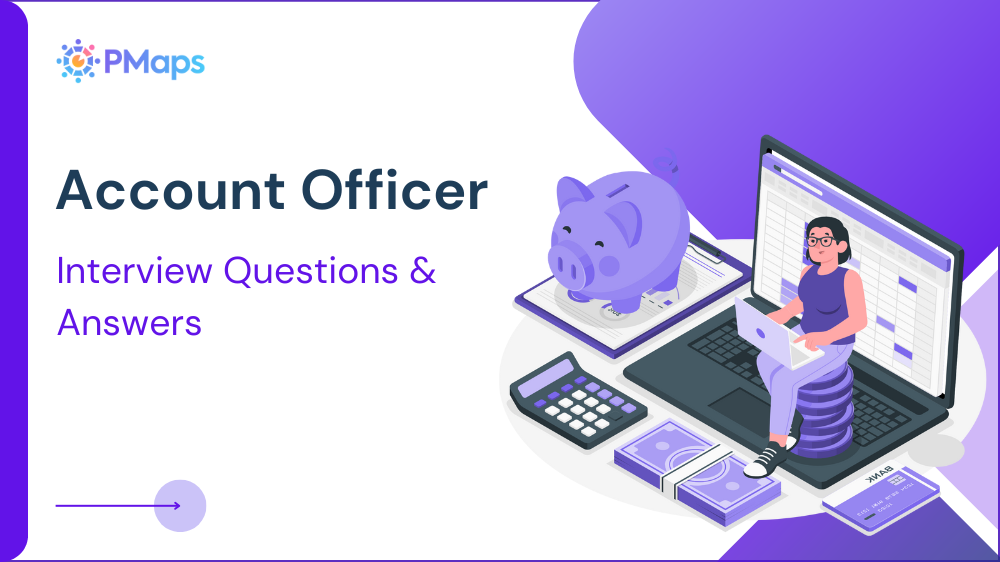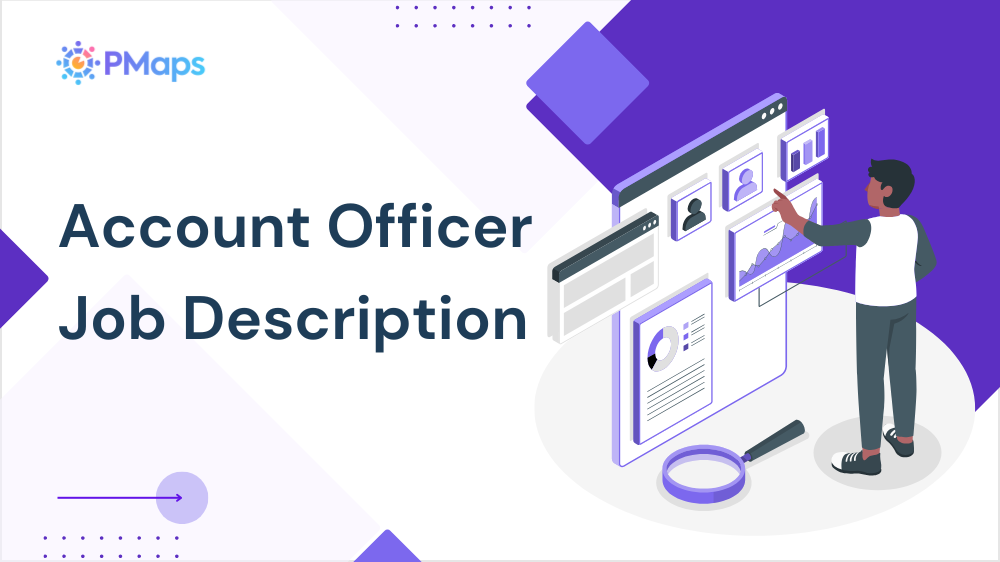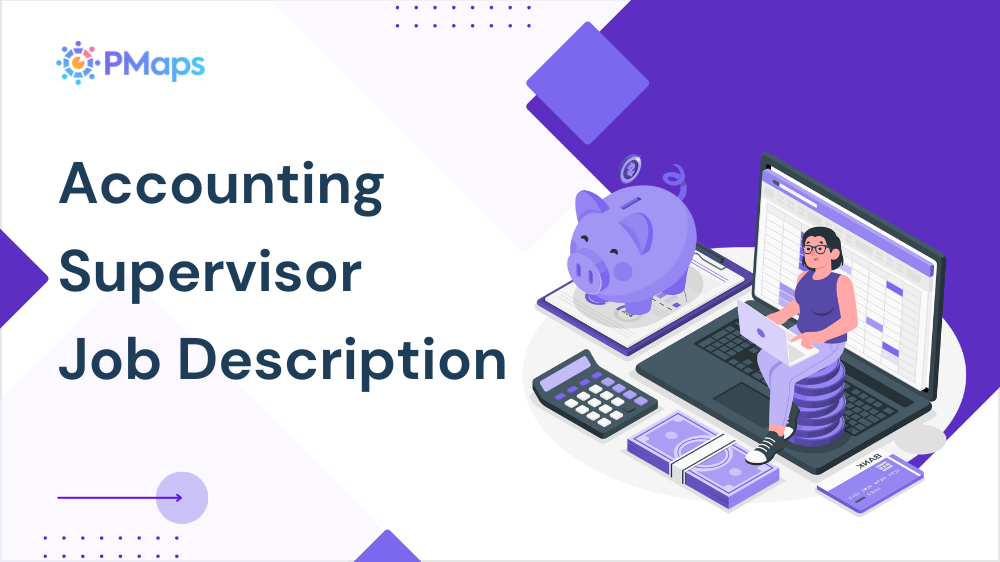
In finance roles, accuracy isn’t optional—it’s non-negotiable. Account Officers carry the weight of reconciliations, payable integrity, audit compliance, and cross-departmental financial flow. A generic interview won’t suffice when trust, precision, and regulatory impact are on the line.
According to the Institute of Management Accountants (IMA), 73% of finance mis-hires result from under-assessing process discipline and system familiarity during interviews. That’s why every account officer interview should dig deeper into workflows, risk posture, and cross-functional agility. This guide offers 25 role-specific account officer interview questions and answers to help you:
- Assess alignment with ledger discipline, system accuracy, and statutory awareness
- Differentiate candidates with both tactical control and reporting fluency
- Reduce hiring risks in receivables, payables, and reconciliations
Let’s begin with general interview questions for an account officer to establish career intent and financial thinking clarity.

General Interview Questions for Account Officers
The opening stage of any account officer interview should explore more than just accounting knowledge. It must reveal whether the candidate understands the broader financial flow and role sensitivity in transaction integrity, vendor relations, and month-end closing cycles.
Sample Candidate Answer: I chose accounting operations because I enjoy working within structured systems. I’ve consistently handled ledger entries, reconciliations, and vendor payments with an emphasis on accuracy and audit readiness. I prefer processes where my decisions directly affect reporting integrity and vendor trust.
This response indicates structured motivation, familiarity with accounting workflows, and internal alignment with the demands of an account officer’s routine. Here are five core account officer interview questions to begin your evaluation:
1. Why did you choose a career in accounting operations?
What it Assesses: Role motivation and process orientation.
What to Listen For: Candidates should reflect interest in structured processes, reconciliations, financial reporting, or risk-managed functions—beyond just “working with numbers.”
2. What is your understanding of an Account Officer’s role?
What it Assesses: Role clarity and daily expectation alignment.
What to Listen For: Look for mentions of payables, receivables, reconciliations, month-end close, ledger maintenance, and vendor communication—not generic admin support.
3. What accounting tools or systems have you used?
What it Assesses: Tech fluency and process execution.
What to Listen For: Candidates should be familiar with Tally, QuickBooks, SAP, Zoho Books, or ERPs. Bonus if they’ve used multiple tools or migrated systems.
4. What would you do if a payment deadline clashed with a data gap?
What it Assesses: Urgency prioritization and escalation logic.
What to Listen For: Strong candidates will explain how they flag the issue, alert stakeholders, and verify data while maintaining workflow timelines or triggering provisional action.
5. What steps do you take to minimize manual entry errors?
What it Assesses: Detail orientation and risk mitigation.
What to Listen For: Expect process checks, batch validation, double-entry practices, or tool use like invoice scanners and approval workflows.
Behavioral Interview Questions for Account Officers
While technical proficiency is critical, how a candidate behaves under deadlines, audits, or inconsistencies reveals the true cost of a hiring decision. These behavioral account officer job interview questions and answers are designed to surface how candidates respond when discipline and integrity are tested.
Sample Candidate Answer: During one quarterly close, a mismatch in vendor balances created a delay. I traced the discrepancy across two reconciliation cycles, identified a misclassified entry, and immediately reported it. Rather than assigning blame, I explained the resolution path, updated the ledger, and submitted an internal correction note to the supervisor. We closed the books with a revised statement the same evening.
This example demonstrates calm under pressure, process tracing skills, and ownership of resolution—essential for finance roles. Use these targeted account officer interview questions and answers to evaluate behavioral maturity:
1. Describe a time you spotted an error in the general ledger. What did you do?
What it Assesses: Error handling and integrity.
What to Listen For: Look for traceability, proactive communication, and correction methodology. Bonus if they mention keeping audit trails and cross-verification.
2. Tell me about a situation where you had to meet a deadline with limited data.
What it Assesses: Time-pressure execution.
What to Listen For: Did they escalate wisely? Use placeholders with flags? Communicate risk upfront? Good candidates maintain clarity, not just speed.
3. Share an instance where you managed a vendor disagreement over payments.
What it Assesses: Relationship management and documentation.
What to Listen For: They should reference invoice validation, mail chains, escalation processes, and negotiation skills without compromising compliance.
4. How do you ensure consistency during monthly closing periods?
What it Assesses: Discipline and SOP adherence.
What to Listen For: Expect mention of predefined templates, recurring task lists, ledger locks, cut-off timing, and communication with other teams (especially sales/procurement).
5. Give an example where you maintained confidentiality in handling financial data.
What it Assesses: Trustworthiness and data ethics.
What to Listen For: Strong responses reflect file access control, secure documentation, and restricted sharing practices—even under internal pressure.

Technical or Functional Interview Questions for Account Officers
A core responsibility of any Account Officer lies in managing financial precision across invoices, ledgers, reconciliations, and compliance records. Beyond just knowledge of tools like Tally or SAP, these roles demand rhythm in executing SOPs, conducting variance analysis, and maintaining reporting hygiene.
These account officer interview questions and answers are designed to reveal how candidates operate in their day-to-day technical responsibilities—ranging from accounts payable cycles to monthly closing tasks. They help hiring teams distinguish between candidates who know accounting theory and those who can uphold financial discipline on the job.
Sample Candidate Answer: My typical monthly close process includes clearing suspense accounts by the 28th, validating sub-ledger balances, updating vendor reconciliations, and submitting MIS data by the last working day. I use SAP and Excel with macros to automate checks and flag mismatches. I also lock ledger access post-closure to prevent revision errors.
This response shows ownership, automation familiarity, and structured work practice—essential for audit-ready financial control. Below are five functionally focused account officer job interview questions and answers to test operational execution depth:
1. Walk me through your monthly closing process.
What it Assesses: Routine ownership, SOP adherence, and financial cadence.
What to Listen For: They should mention cutoff dates, accruals, balance validation, sub-ledger clearing, and reporting checkpoints. Bonus if they describe automation or scheduling tools.
2. What types of reconciliations have you managed, and how?
What it Assesses: Attention to detail and ledger familiarity.
What to Listen For: Candidates should reference bank reconciliations, vendor reconciliations, intercompany accounts, and suspense accounts—with clear steps taken to identify mismatches.
3. How do you handle discrepancies in accounts payable?
What it Assesses: Vendor relations and exception handling.
What to Listen For: Strong candidates will mention invoice verification, GRN checks, escalation to procurement, credit note follow-ups, and ledger reclassifications if needed.
4. What accounting tools or ERP systems have you worked with?
What it Assesses: Tech fluency and integration familiarity.
What to Listen For: Expect tools like SAP, Tally, Zoho Books, Oracle, or QuickBooks. Ask how they used features like automated journal entries, approvals, or analytics.
5. How do you ensure tax compliance in routine entries?
What it Assesses: Regulatory awareness and operational consistency.
What to Listen For: Candidates should mention TDS application, GST classification, reverse charges (if applicable), and working with auditors or tax teams for validation.
Conclusion
Interviewing for the role of Account Officer requires more than surface-level questioning. You need to identify candidates who bring not just accuracy, but consistency, documentation rigor, and compliance-first execution across payables, receivables, and reconciliations.
The 25 targeted account officer interview questions in this guide offer a structured path to uncovering financial reliability and process maturity—skills that are often overlooked in traditional interviews.
To ensure role expectations and question scope are aligned, refer to the Accounts Officer Job Description for daily accountabilities, ledger routines, and operational benchmarks. For teams looking to add objectivity before hiring, the Finance Officer Test can help validate core functional and judgment-based capabilities. For further assistance, connect with us at 8591320212 or assessment@pmaps.in.









